SAMURAI SWORD 40 - WWII WAKISASHI
This is a Japanese WWII Samurai Wakisashi sword. The construction indicates the mid to late 1800's. The attire is
presented in traditional format as opposed to combat.
The handle is very nicely wrapped. menuki exist on both sides but cannot be seen because the wrapping is so tight. The
handle fittings are all matching and depict a tiger. The Tsuba is no exception. Very nice workmanship was applied
to this sword.
The scabbard was all traditional wood. The finish is a speckled type. A loop is built-in near the base. this is
how the sword was attached to a belt.
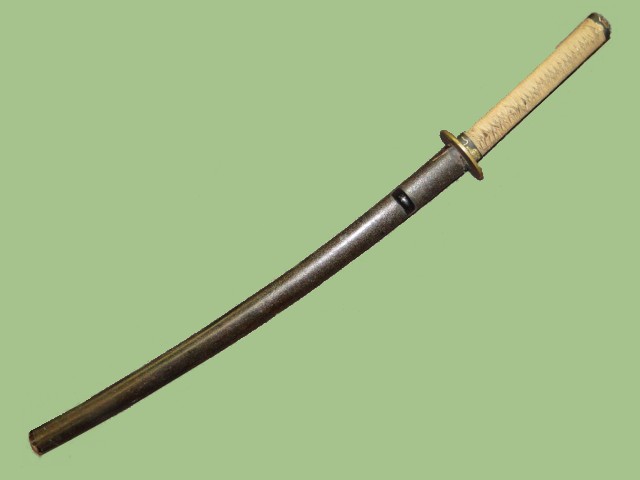
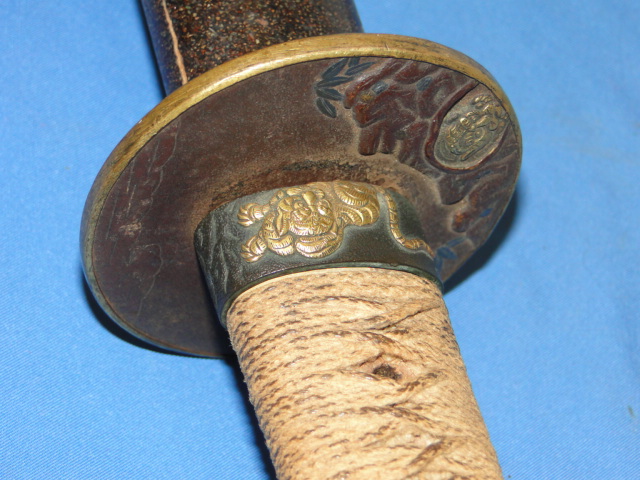
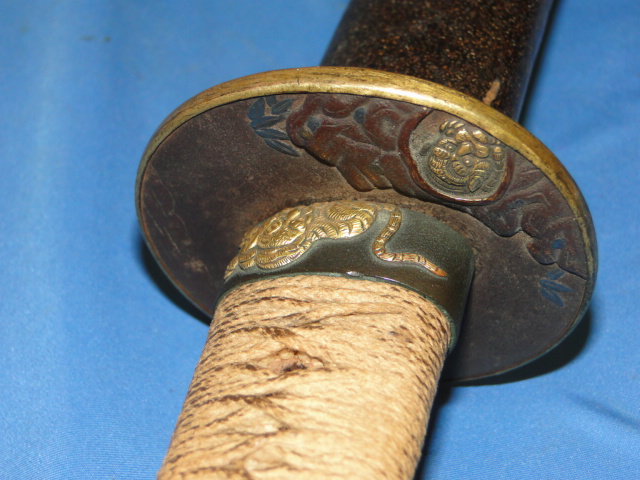
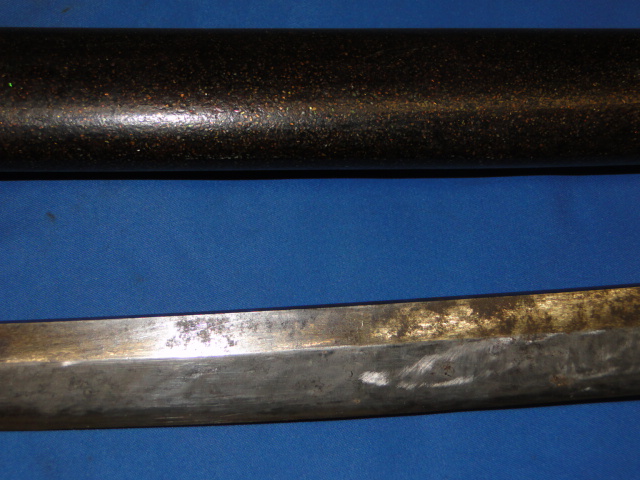
The blade is covered in old, dried up oil. It is not a good practice to apply oil to the blade and leave it.
The oil can be cleaned but it will take alot of work. The coat is so thick that it is difficult to see if
a hammon exists on the edge.
The Habaki has a "rain" design applied to it. It is composed of a series of fine lines applied at an angle. This
attribute was a little more expensive and was an indication that the soldier paid a little extra for the sword.
A clear sign of pride.
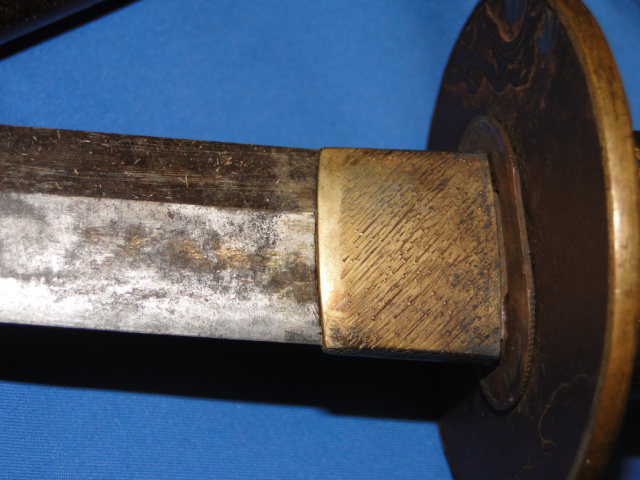
The following pictures show the manner in which the handle was wrapped. very tight pattern which hides the Menuki.
This format is normally associated with the Japanese rebellion. The material used for the wrapping is a type of
hemp.
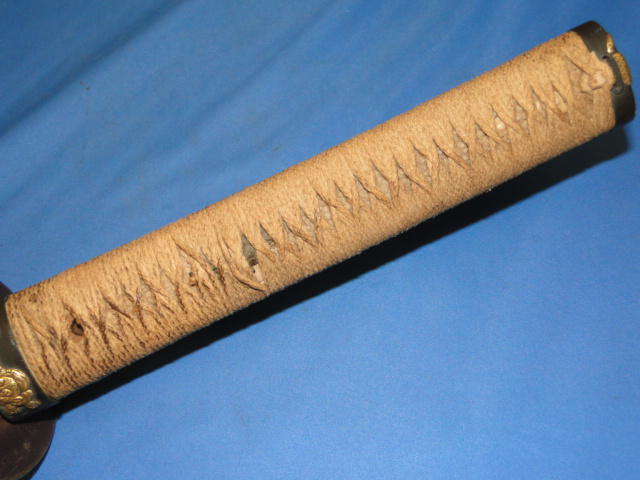
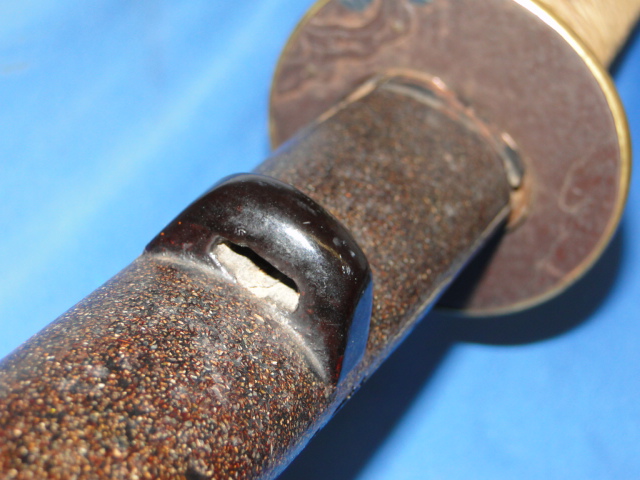
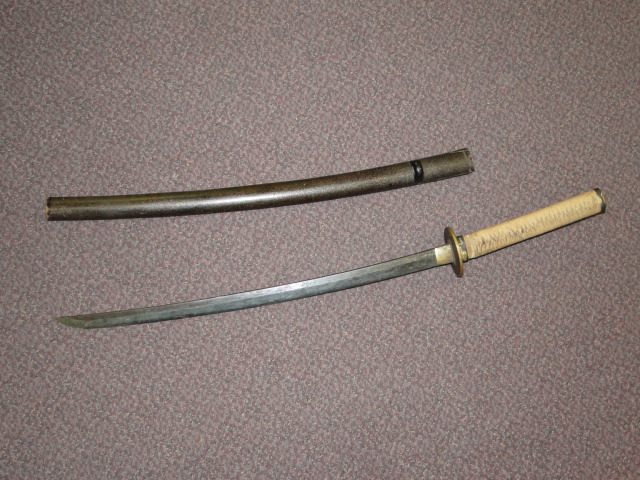
|
This page is a recognition and identification guide for Samurai swords.
Multiple detailed photos of a specific sample are provided. Descriptions point
out clearly defined points that should be noted.
One of the most commonly asked questions is "How much is my Samurai Sword worth?".
A price guide is included here to address this question. The value of the swords is
reviewed over a period of several years. A trend can be observed. The present worth
of the edge weapons in the collector's market is illustrated.
This service is provided free of charge to the visitor/enthusiast courtesy of
MilitaryItems.com,
a company dedicated to the preservation of military history and to providing quality
military antiques and collectibles to museums, institutions and the general public.
|
|
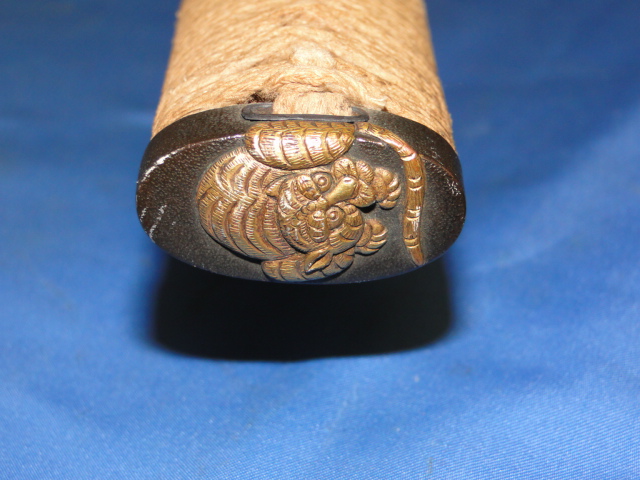
The tiger motiff is seen in multiple sections of the sword. The craftsmanship is very high. The tiger on the Kashira
(pommel) is primarily located on the top but has part of it draping down the side. The tiger figure had to be created
precisely to achieve this form.
The same tiger image is reflected on the metal cap.
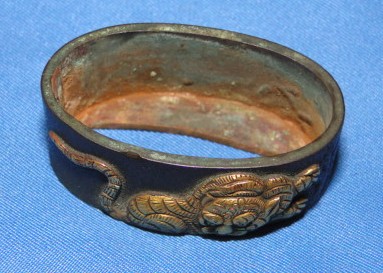
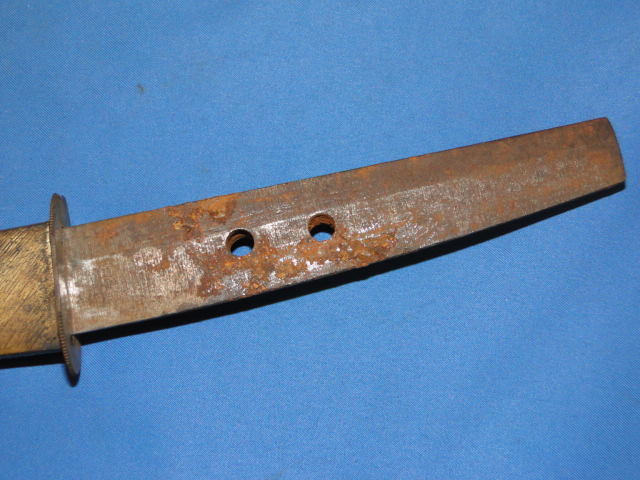
The tang is not signed. The end is cut straight. There are two holes drilled in the tang. This is an indication that
the sword was shortened at one point.
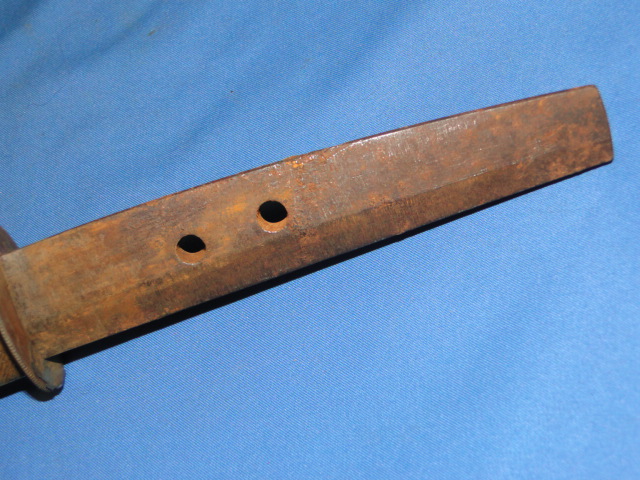
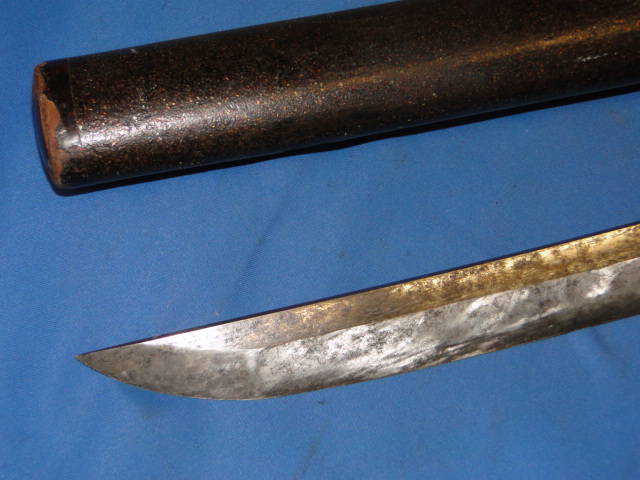
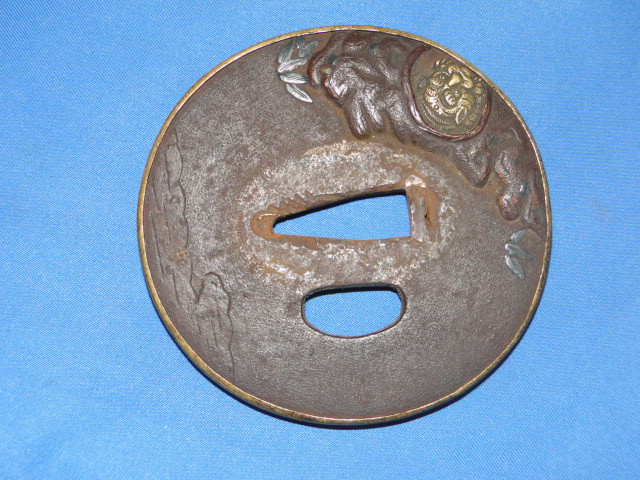
The Tsuba continues with the tiger head mottiff. One side reveals part of the signature of the person who
created the Tsuba. One section appears to have a small repair.
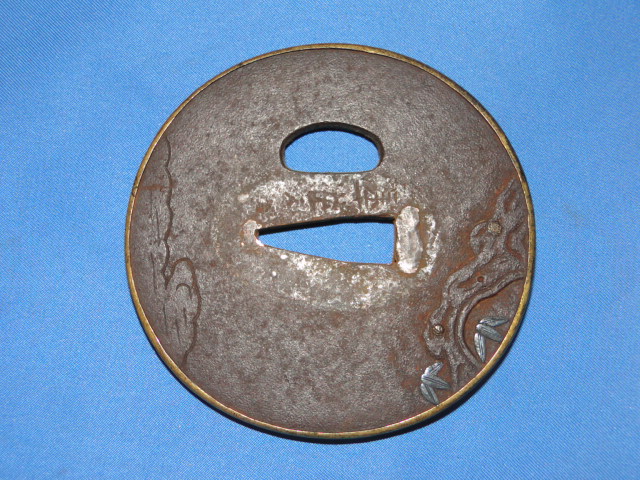
This Samurai Sword may be currently reproduced.
It is becoming more difficult to be able to tell the fake ones from the real ones because
the quality of the reproductions is improving. The collector must become familiarized with
the construction style and materials employed in the manufacturing of this item.
Attention to the details is critical in order to be able to determine the authenticity of
the collectible.
If you have an interest is seeing other Japanese Samurai swords, you can do so by going to our
Japanese Samurai Swords Price Guide
identification guide. Where we cover Samurai swords from all periods.
| 




